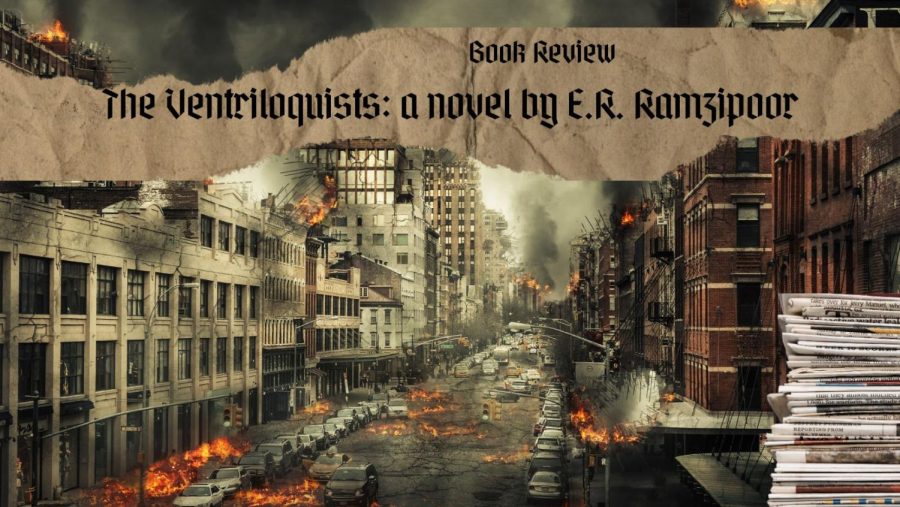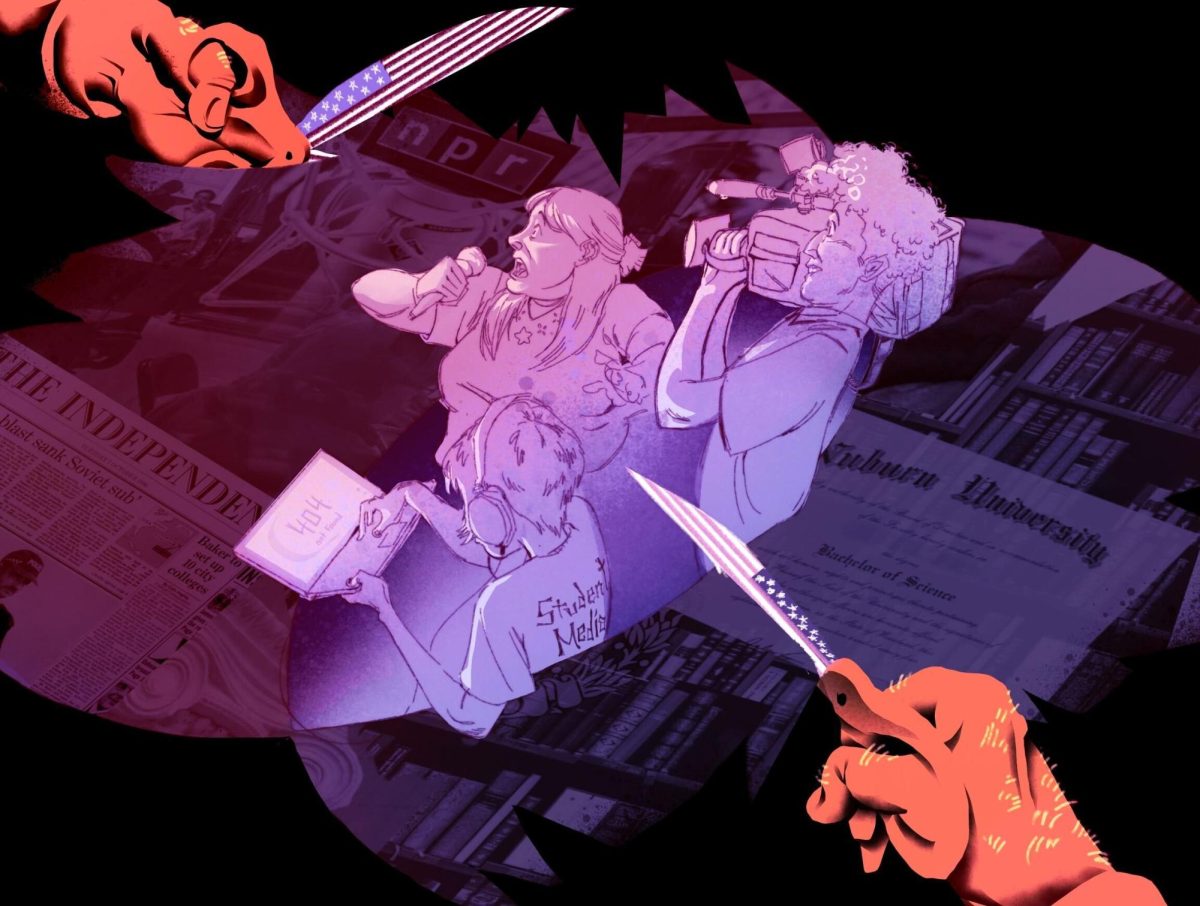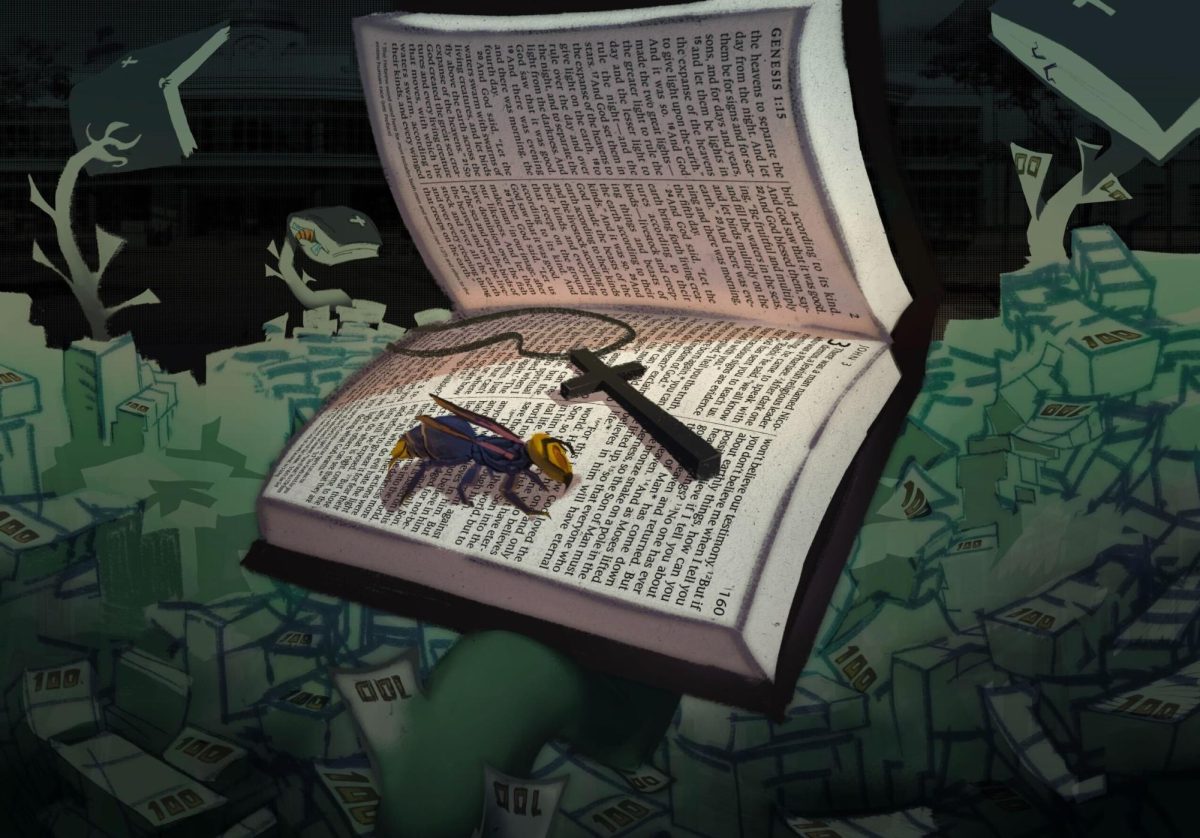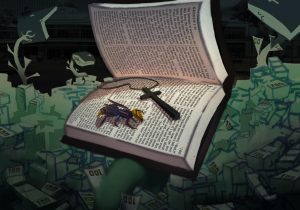Review: The Ventriloquists A Novel
The Ventriloquist: A Novel by E.R. Ramzipoor’s takes fake news to a whole new level during the invasion of Belgium during World War II by Nazi Germany. Photo credit: Gerardo Chagolla
April 18, 2023
Imagine: your once-free nation has been invaded by an enemy dedicated to imposing their narrow ideology on others. This enemy, skilled in propaganda, has usurped the news media and taken over your nation’s oldest and most trusted newspaper.
You are a journalist, devoted to the truth. What do you do?
In The Ventriloquists, author E.R. Ramzipoor depicts the real-life challenges and dangers faced by a group of journalists in the nation of Belgium, during the occupation by Nazi Germany in World War II.
On May 18, 1940, just days after the German invasion, the Nazi propaganda makers had taken over Belgium’s main newspaper, Le Soir (French: “The Evening”).
This is roughly the equivalent of an enemy nation overtaking the United States’ Wall Street Journal for propaganda.
During the war, many governments, organizations, and individuals collaborated out of conviction, desperation or coercion. This was in hopes that by appeasing the Nazis, they could mitigate harm from themselves, their citizens or their economies.
But several Belgian resistance movements emerged during this time and the book does a great job at implementing that detail. One featured in the book is the Front de l’Independence (FI, in English meaning “Independence Front”), founded in 1941, established sabotage operations, escape routes, a false document service and distributed 250 different underground publications.
The Ventriloquists implements fact and fiction in a way that reads as if the entire book is a true story. For example, it also implements the true story of Marc Aubrion, writer and editor of underground paper La Libre Belgique (The Free Belgium).
He came up with an idea to create a fake version of the Le Soir newspaper. Abrion wrote most of what became known as the Faux Soir (Fake Soir), using zwanze, an exaggerated, mocking type of folk humor, characteristic of Brussels, Belgium.
Eventually, the conspirators were rounded up and most were either imprisoned or killed. Even still, the survivors do not regret their sacrifice. There are even many copies of Faux Soir which had survived the ravages of time. One was bought by author Ramzipoor, who decided to flesh out this story using the literary device of historical novel, which has fictional characters mixing with non-fictional events.
Ramzipoor also took creative license by adding LGBTQ characters, because they wanted to show that gay and lesbian people took part in the resistance during the war. Using the device of multiple viewpoints of the various protagonists, Ramzipoor lets the reader dive deep into their motivations which makes them feel realistic.
The term “Ventriloquists” refers to one who puts their own voice into the mouth of another – a play on what the authors of Faux Soir were doing, in creating literary pieces in their fake paper. Ramzipoor added another element of danger in having the La Libre Belgique writing troupe threatened and coerced into creating a propaganda newspaper which was to make allied leaders such as Winston Churchill and Franklin Roosevelt appear to be evil.
While the author also takes license with the manner of death for at least one major character and one character’s love interest and career, The Ventriloquists is an exciting compelling read.
This book comes highly recommended and is a great read for any and all.


















